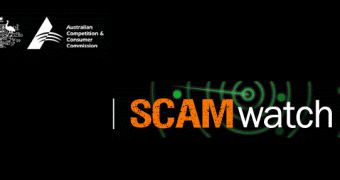In December we’ve seen how cybercrooks compromised email addresses and sent out to all the individuals in the victim’s contact list distress emails, claiming they’ve been robbed while vacationing overseas and urgently needing money.
At the time, the numbers of scam emails allegedly coming from friends in distress were relatively low, but now experts and state officials are warning Internet users that these scams are becoming more popular among cyber masterminds.
SCAMwatch, the organization of the Australian government in charge with monitoring scams and alerting citizens, released an alert to notify people of their existence.
While their advisory targets individuals from Australia, more precisely the ones throughout the Anangu Pitjantjatjara Yankunytjatjara (APY) lands, it’s clear that these scams are part of a global scheme that may target anyone.
This is why Internet users should learn how to identify these cleverly designed plots that rely on the bond between friends to record a huge rate of success.
First of all, almost always, the malicious emails come from an acquaintance, which means that their email account was either compromised, or the crooks are using spoofed addresses.
In most cases, the email seems to come from overseas, from Spain or other similar countries where people go on vacation a lot. Another similarity between the phony distress calls is that in most cases the friend requests more than $3,000 (2,100 EUR).
Also, the friend asks the recipient to send the money by wire or international money transfer because thus the chances for the sum to be recovered are slim.
This is how the scam emails look like. But how can you protect yourself against them?
Since the fraudsters probably send distress emails to all the contacts in their victim's address book, users may receive these phony messages from someone they barely know, but who happens to be in the contact list.
In most cases this is how the true purpose of an alert can be identified. Why would anyone, especially if it’s someone you’re not that close with, contact you if they desperately need money?
On the other hand, if it’s a close friend, you probably know that he’s vacationing in Spain or any other country and if you’re not sure, you can always call him (or her). In case the above mentioned details surface in the email, you’re most likely targeted by a scam.
If you come across these types of emails, analyze them carefully and if they seem suspicious, ignore them. Also, targeted spam can be reported to your country’s specialized organizations or to websites that try to raise awareness.

 14 DAY TRIAL //
14 DAY TRIAL //